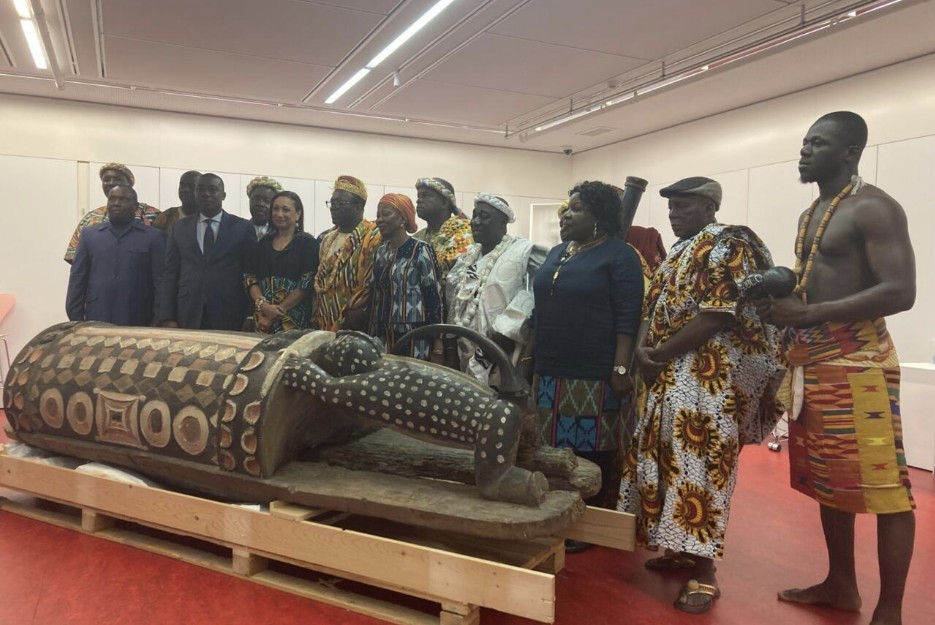The Rise of University Encampments for Palestine
- Tara Grice
- May 17, 2024
- 3 min read
In recent weeks, dozens of university students around the world have participated in a new development in the pro-Palestinian protest movement. The decision to stage encampments at university campuses in response to academic institutions’ ties to Israel - whether through investment in weapons manufacturing or corporations who profit from the war - is a demonstration of undiminished solidarity and the desire by students to have their demands met after months of protests. It has amplified youth concerns about the mounting death toll in Gaza, which is only to be exacerbated by Israel’s Rafah offensive.
The encampments are characterised by dozens of tents, pro-Palestinian signs, the wearing of keffiyehs, and daytime activities involving chants, the playing of Arabic music, and outdoor seminars delivered by professors and lecturers.
With no universities left in Gaza due to the conflict, the use of protest by university students illuminates the human rights contravened by war; most significantly, access to education.
The US was the first country to observe an encampment related to the war, at Columbia University on April 17. On May 4, the encampment came to an end after extensive police involvement. Dozens of protestors were arrested on trespass charges, after which police cleared the university lawn of all demonstrators.
This combative response is in stark contrast to the peaceful resolution achieved between students and academic leadership at Brown University. After a month of its own encampment, the university reached an agreement with protestors that a vote would be held on the divestment of funds from companies with links to Israel. The university stressed that no person who participated in the protests would face reprisal.
The apparent success of the Brown encampment is testament to the effectiveness of the protest method despite pushback in other regions of the US, a palpable and disruptive means of demanding institutional change.
Other countries have followed the example of US universities, including the United Kingdom, Australia, Japan, Canada, and a number of European countries.
The Australian Encampments
On April 24, University of Sydney (USYD) students joined the movement and began an ongoing encampment on the university lawn, urging the university to divest from businesses connected to the occupation of Palestinian regions and the support of Israeli weaponry.
Thales Australia, which funds USYD, supplies weapons to the Australian army. Some of these weapons may be used in the Gaza war.
Other universities soon followed suit, including Queensland, Melbourne, Monash, and the Australian National University.
The political response to the encampments has been striking in its dismissal of demonstrations as mere nuisance, or, alternately, as fuelling anti-semitism on campuses. Notably, Australian Prime Minister, Anthony Albanese, dismissed the protestors as ‘Trots’, short for ‘Trotskyists’, in a private meeting with leading rabbis (The Australian).
However, what matters more than political reception is how the universities respond to the encampments. The democratic nature of Australia’s educational system has fostered an accommodating response, facilitating the right of students to protest. The Group of Eight (Go8) chief executive said that the encampments are ‘freedom of speech and free speech…in action’, and that there are ‘no plans’ to dismantle the camps.
Assessing the movement’s effectiveness thus far, the USYD Vice Chancellor has stated that the university will not cut academic ties to Israel. Most recently, an encampment at Deakin University, which is not a member of the Go8, has been ordered to dismantle. Students, however, have refused to adhere to this.
Given how some universities in the US managed protestors through brute force rather than negotiation, it remains to be seen what demands will be met or fruits evolve from discussions with protestors. Although Australia is not the US and its position on Palestine has evolved in recent weeks, particularly with its UN vote on Palestinian membership, it has historically been a staunch supporter of Israel. This may be reflected in the measures universities dispense with to control encampments and ensure support for Jewish student populations, who have reported stigmatisation and marginalisation in the wake of protests. For now, there appears to be little need for further security measures considering the peaceful nature of the protests.
Regardless of how the coming weeks unfold at universities, it is safe to say that student activism for Gaza continues to prevail in Australia, with no clear end to solidarity in sight.





Comments